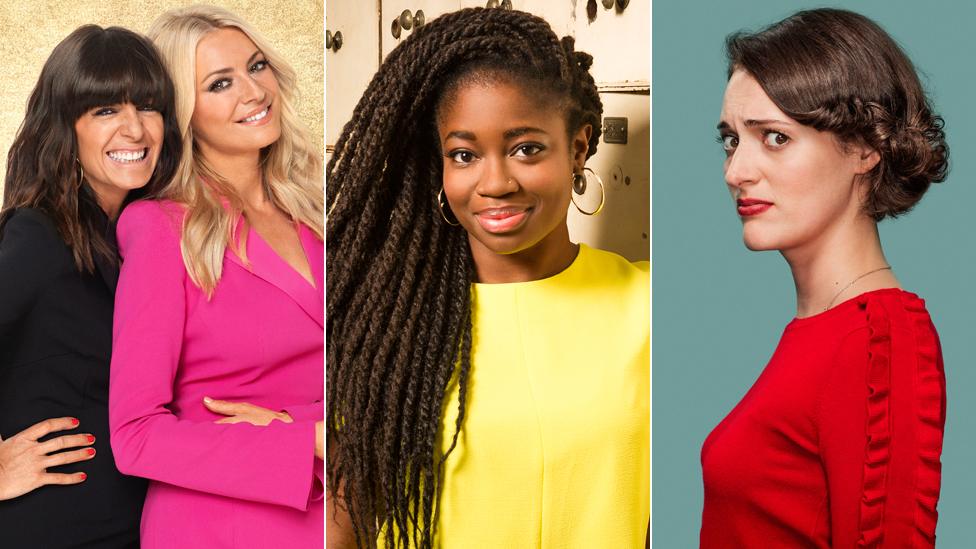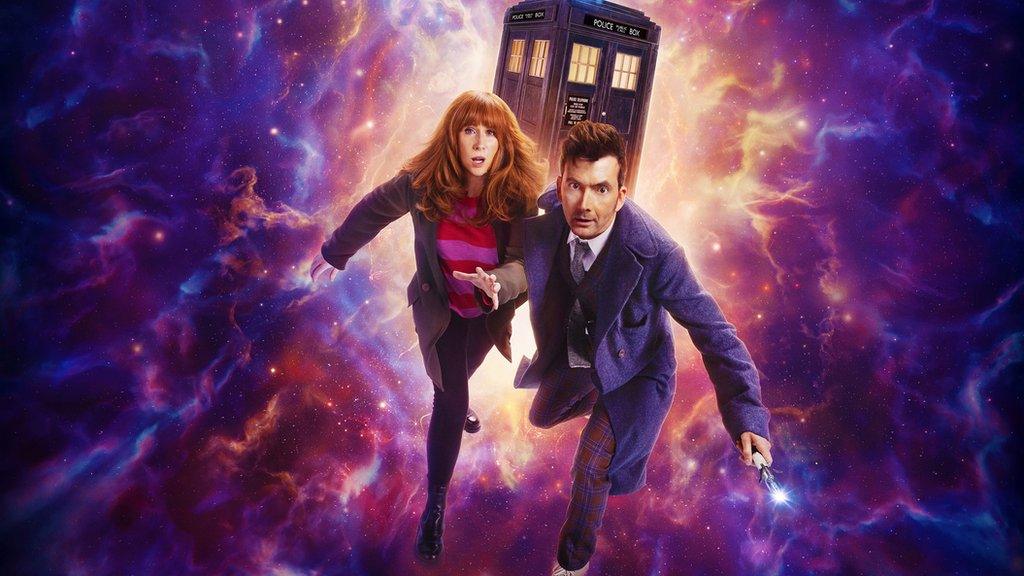TV licence fee decriminalisation decision shelved
- Published
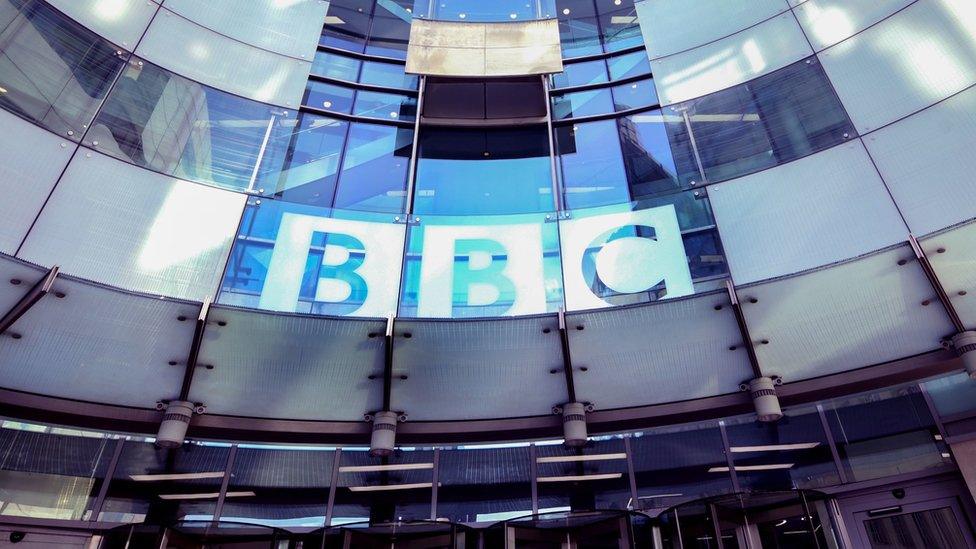
The government has committed to keeping the current licence fee model until 2027
The government has decided not to move ahead with plans to decriminalise non-payment of the TV licence fee, but said it would "remain under active consideration".
Culture Secretary Oliver Dowden said, external the criminal sanction was "increasingly unfair and disproportionate".
However, he also noted an alternative system could result in "significantly higher fines" for licence fee evaders.
The BBC said the current system was "the fairest and most effective".
Money raised from the licence fee, which costs £157.50 a year (or £53 for black and white TV sets), pays for BBC shows and services - including TV, radio, the BBC website, podcasts, iPlayer and apps.
In 2019, the licence fee accounted for about 76% of the BBC's total income of £4.9bn, external, with the remainder coming from commercial and other activities (such as grants, royalties and rental income).
Mr Dowden's comments came as the government published the findings of a public consultation on the issue of decriminalisation.
What was the consultation?
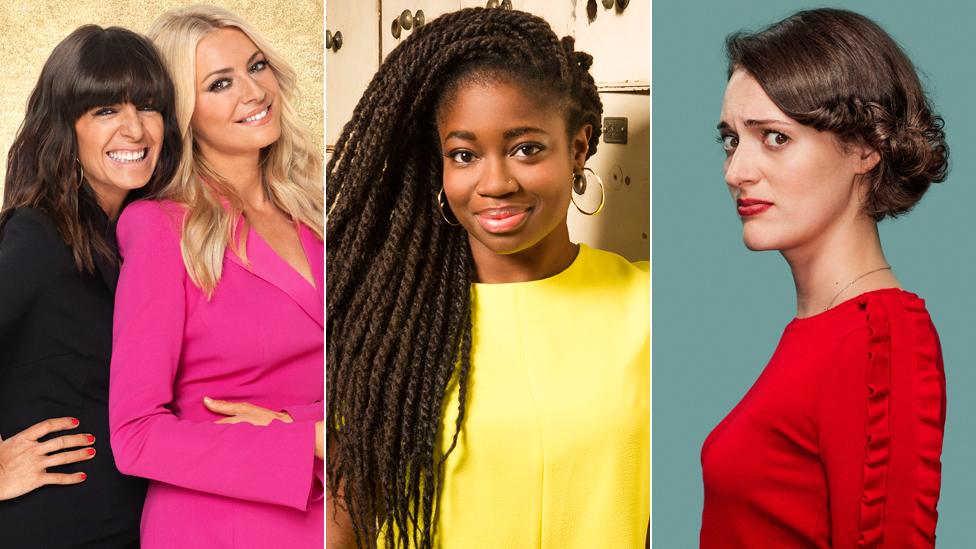
L-R: Tess Daly and Claudia Winkleman of BBC One's Strictly Come Dancing, Radio 1's Clara Amfo and Phoebe Waller-Bridge of BBC Three's Fleabag
A public consultation launched by the government in February 2020 asked whether non-payment of the licence fee should continue to be a criminal offence.
It explored whether the current system could be replaced with a civil enforcement scheme.
The consultation, which lasted eight weeks, received 154,737 responses from members of the public, campaign organisations and other stakeholders.
Currently, anyone who watches or records live TV or uses iPlayer without a TV licence is guilty of a criminal offence and could go to prison.
The government has committed to maintaining the current licence fee funding model until 2027 - when the current Charter period ends.
What were the consultation's findings?
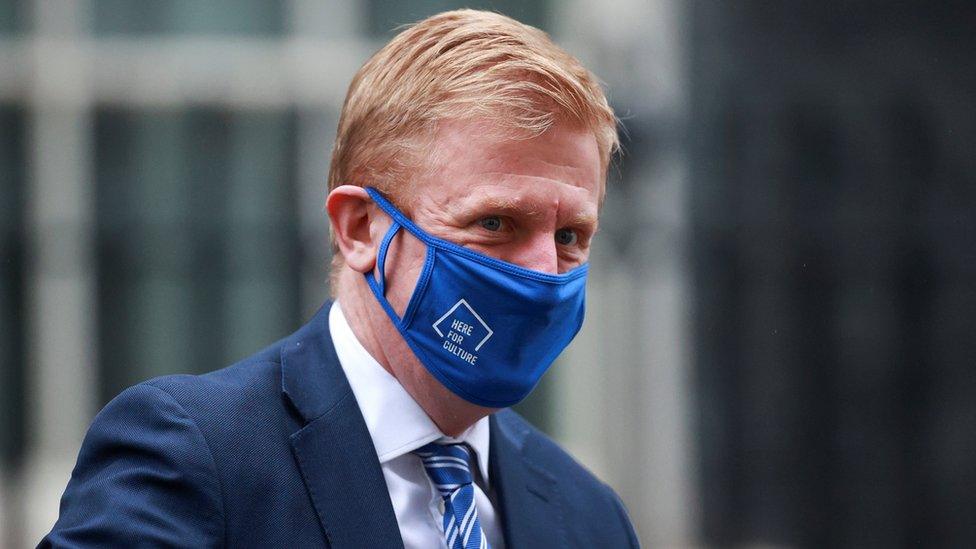
Mr Dowden noted the criminal sanction can cause "stress and anxiety" to individuals
The government said it "remains concerned that a criminal sanction for TV licence evasion is increasingly disproportionate and unfair in a modern public service broadcasting system".
It said respondents highlighted the "considerable stress and anxiety" the criminal sanction can cause for individuals, particularly vulnerable people.
However, the government also said it recognised there could be damaging consequences for the public if the current system was abandoned.
Mr Dowden acknowledged there was "the potential for significantly higher fines and costs for individuals who evade the licence fee requirement" under a civil regime.
The consultation also "highlighted significant impacts in terms of both the cost and implementation" of a new system, particularly as evasion is currently handled "very efficiently in the Magistrates Court".
Responding to Thursday's publication of the government's findings, a BBC spokesperson said: "The current system remains the fairest and most effective.
"The responses to the government's consultation shows the majority back the current system. The BBC will fully engage with the government going forward on how we can continue to play an important role for the public."
What happens next?
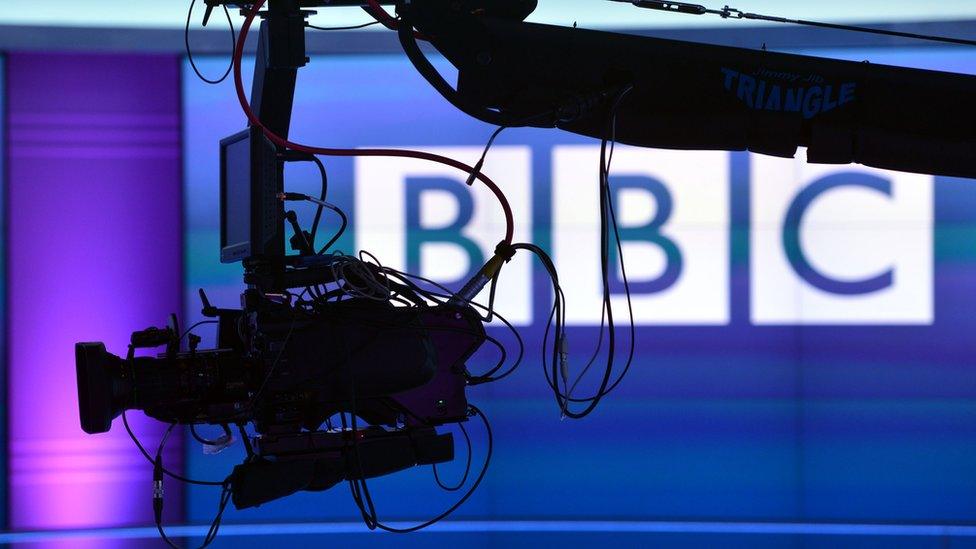
Licence fee decriminalisation would have a considerable impact on BBC funding
The government said it remained determined that any change to the TV licence enforcement scheme "should not be seen as an invitation to evade the TV licence requirement, nor should it privilege the rule-breaking minority over the rule-abiding majority".
"The issue of decriminalisation will remain under active consideration while more work is undertaken to understand the impact of alternative enforcement schemes," it added.
If decriminalisation of the TV licence fee were to go through, it would have a considerable impact on BBC funding.
Mr Dowden added the government would take forward the findings of its consultation into the next licence fee settlement, which will set the level of the licence fee for a period of at least five years from 2022.
Negotiations formally begun for the next licence fee settlement recently, Mr Dowden confirmed.

Follow us on Facebook, external or on Twitter @BBCNewsEnts, external. If you have a story suggestion email entertainment.news@bbc.co.uk, external.
Related topics
- Published5 February 2020
